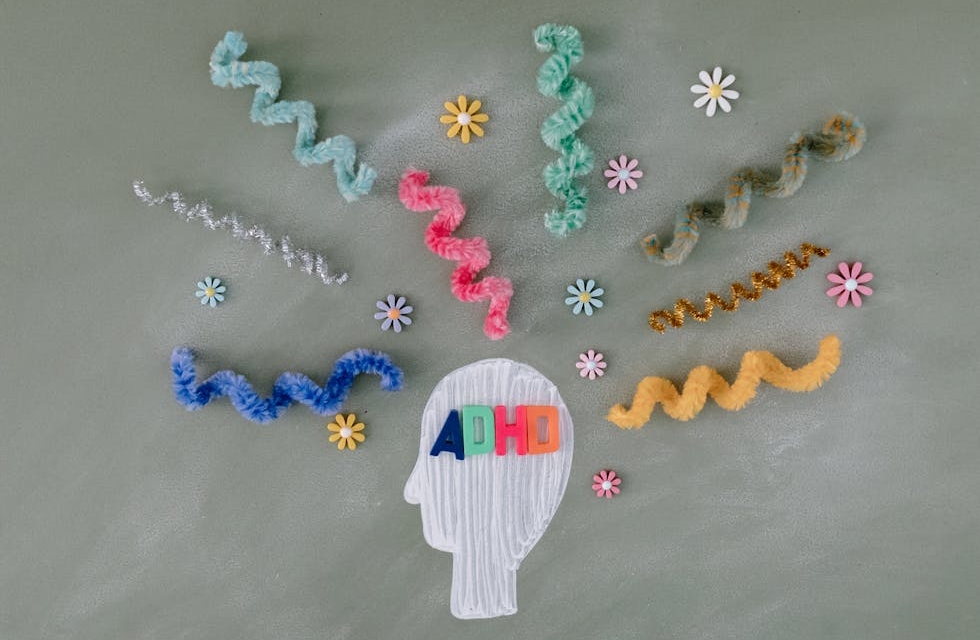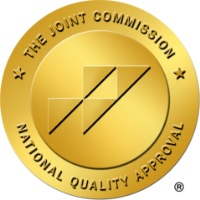What Is Cognitive Behavioral Therapy (CBT)?

Cognitive behavioral therapy in Massachusetts is a type of talk therapy that focuses on helping individuals identify and change negative thought patterns and behaviors. It’s based on the concept that everything is interconnected — our thoughts, emotions, and behaviors.
Imagine you have to give a presentation to your team, and you’re feeling nervous about it. You might think, “No one is going to know what I’m talking about.” This thought is negative and self-critical, creating a narrative in your mind that you won’t succeed. Because of this thought, you feel anxious and afraid. As a result, you don’t practice and rush to get the presentation over with. Understandably, things don’t go as smoothly as they could have, reinforcing the negative idea that you aren’t good enough.
CBT counseling in Massachusetts works on changing these negative thought patterns into more positive ones. In this case, you might say, “I’ve prepared well, and it’s okay to be nervous.” This shift in thinking could encourage you to practice more, which results in a better presentation, reinforcing a positive cycle. CBT empowers people to take a more active role in their mental health journey, giving individuals the skills needed to manage difficult emotions and regain control over their lives.
Do You Qualify for Mental Health Treatment in Massachusetts?
East Point Behavioral Health provides specialized mental health care in Massachusetts for adults aged 18 and older. While we do not specialize in substance use disorders (SUD), we address co-occurring conditions and can connect you with trusted SUD treatment referrals if needed. Our mission is to remove barriers to mental health care by offering immediate intervention and prompt access to treatment. Contact us today to start your journey toward mental wellness!

Who Benefits from Cognitive Behavioral Therapy in Massachusetts?
CBT can help people from all different backgrounds and all stages of life. This type of therapy is universal and works well for a number of disorders, including depression, anxiety, and trauma, as well as those struggling with unhelpful thoughts and negative thinking. Therefore, the people who benefit most from CBT are those who are:
- Experiencing mood disorders
- Facing life transitions or stressful situations
- Dealing with chronic conditions or pain
- Seeking relapse prevention
- Struggling with low self-esteem and perfectionism
No matter what you are experiencing, cognitive behavioral therapy in Massachusetts is a proven way to help you create a better, brighter future.
Popular CBT Techniques That Work
What makes CBT so fascinating is that it’s not just one thing — it involves a lot of different mental wellness techniques that come together in many different combinations. Some of the best techniques used in CBT are:
Cognitive Restructuring
Also referred to as cognitive reframing, this technique involves identifying and challenging distorted thoughts and replacing them with more balanced and realistic thoughts. For example, instead of saying, “I made a mistake, so I’m a failure,” the reframed thought would be, “Everyone makes mistakes; this is an opportunity to learn.”
Behavioral Activation
This technique is commonly used with individuals who have depression. As a result, CBT treatment for major depressive disorder encourages engaging in enjoyable or meaningful activities to improve mood and reduce avoidance behaviors (actions that people use to distance themselves from stressful events). For example, if you’re feeling too depressed to leave the house, scheduling small, manageable activities could be helpful in gradually getting out.
Exposure Therapy
Exposure therapy is a useful part of anxiety therapy. It helps individuals face their fears and anxieties in a gradual and controlled way, reducing avoidance over time. Some with a fear of flying might start looking at pictures of airplanes, then visiting an airport, and eventually taking a short flight.
Mindfulness and Relaxation Techniques
These practices help individuals stay present and reduce the emotional impact of negative thoughts. Mindfulness is especially useful in managing stress and anxiety as a part of holistic mental health treatment. For instance, a person can practice deep breathing or progressive muscle relaxation to calm their body and mind during moments of anxiety.
Thought Records
A thought record is a tool to track automatic negative thoughts, triggers, and emotions throughout the day. The goal is to help individuals reflect and reframe their thinking. If you are involved in a triggering situation, such as receiving criticism, your automatic thought might be “I’m worthless.” This can be reframed in a better way: “This feedback can help me improve.”
How CBT Strengthens Intensive Outpatient Program (IOP)
Cognitive behavioral therapy in Massachusetts is a powerful tool used in therapy. When added to an Intensive Outpatient Program (IOP), you learn that you cannot always control what happens to you, but you can control how you interpret and respond to situations.
By learning to change negative thought patterns, you can improve your mental well-being and quality of life. CBT therapy online and in-person is typically a short-term and goal-oriented therapy, lasting 8-16 sessions, though it can be adapted for longer treatment plans. It’s well-researched and highly effective for a variety of mental health issues.
Therefore, CBT supports IOP programs in Massachusetts in a number of ways:
Quick Access
East Point Behavioral Health gets individuals into treatment quickly, usually within 24 hours or so. This means that you can start CBT right away. While it does take time to see results, many people notice improvements after 4 to 6 sessions, especially when the techniques are applied outside of treatment.
Flexible and Less Restrictive
Unlike residential programs that require an overnight stay, people in IOP receive intensive treatment with the ability to return home in the evenings. This less restrictive schedule allows them to maintain their daily responsibilities, such as work, school, or caring for loved ones. This actually works well with CBT, as you’ll be learning new skills and applying them to real-life situations. In fact, your therapist will give you homework so that you can work on various skills and report back with your progress.
Goal Oriented
CBT is a solution focused therapy. Sessions are designed to produce results in a short period, usually 6-18 sessions. You will work with your therapist to set clear, actionable goals, such as improving emotional resilience or adjusting negative thinking habits. By focusing on these specific goals, you can increase motivation and focus. Plus, when you celebrate your successes, you get the satisfaction of meeting your milestones, creating a positive feedback loop. Essentially, completing tasks releases dopamine in the brain, which feels good and builds self-efficacy, helping you stay motivated.

Online CBT Therapy Across Massachusetts and Other States
East Point Behavioral Health extends its cognitive behavioral therapy services beyond in-person sessions. With the growing demand for accessible mental health support, our online CBT therapy now reaches individuals not only in Massachusetts but also in other states. This makes it easier for people to get help without traveling or taking time off work.
Online CBT programs follow the same structure and goals as in-person therapy. You’ll still receive personalized guidance from licensed therapists, complete homework assignments, and learn to manage thoughts and behaviors. All you need is a private space, a stable internet connection, and a device to connect with your therapist.
This flexibility allows people to receive consistent care from the comfort of home. It’s especially helpful for those living in remote areas or facing scheduling challenges. Whether you’re in Boston or another state, you can access our licensed online CBT therapists in Massachusetts.
East Point Behavioral Health remains committed to removing barriers to therapy. Our secure telehealth platform makes it possible to receive CBT individual and client centered group therapy sessions while maintaining your privacy and comfort. You don’t have to put your progress on hold just because you can’t visit in person.
Take the First Step Toward Change
East Point Behavioral Health is here to change the lives of individuals for the better. Cognitive behavioral therapy in Massachusetts and beyond is a wonderful addition to most treatment plans and teaches individuals how to cope with stressful situations in life. It promotes healthy habits and routines, which in turn, support good mental health. If you are thinking about seeking help online or in person, for yourself or a loved one, get in touch with East Point Behavioral Health today!
Frequently Asked Questions
Can I do CBT therapy online in Massachusetts?
Yes. East Point Behavioral Health offers online CBT therapy to clients across Massachusetts and in other approved states. It’s a flexible and secure option for those who prefer remote care.
What is the success rate of CBT therapy?
CBT is one of the most researched therapies available. Studies show that CBT can significantly reduce symptoms in 60–80% of people with anxiety, depression, and similar disorders.
How long does Cognitive Behavioral Therapy in Massachusetts take to work?
Most people start seeing changes after 4 to 6 sessions. Full treatment usually lasts 8 to 16 sessions, depending on your needs and goals.
Is online CBT therapy covered by insurance in Massachusetts?
Many insurance providers do cover online CBT therapy. East Point Behavioral Health accepts several plans. Our staff can help check your coverage before starting treatment.
What’s the difference between Cognitive Behavioral Therapy in Massachusetts and other types of therapy?
CBT focuses on the connection between your thoughts, feelings, and actions. It’s more structured and goal-focused than many other talk therapies, helping you develop practical tools to manage your mental health.






